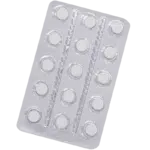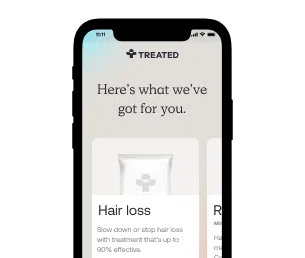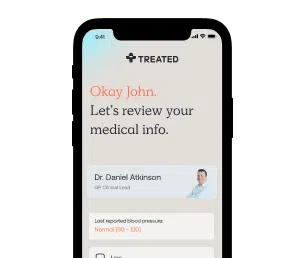Period Pain
Get effective relief from menstrual pain.
Period pain is the painful sensations that often appear during or just before your menstrual period. It’s often felt as a cramping pain in the stomach, though it can spread to the back and upper thighs. The type of pain you feel can also vary.
If your period pain is too intense, or it’s getting in the way of your daily activities, there are options to make it better. We can give you options to make dealing with your period easier.
Period pain is pain related to the menstrual cycle. It’s often experienced as cramps and can range from a dull ache to sharp stabbing pains. It’s usually at its worst when your bleeding is heaviest, so in the first couple of days of your period. Some women have period pain for a much longer part of their cycle.
Period pain can range from mild to severe. If you have pain that’s severe, or your pain means you struggle to complete your day-to-day activities, you might benefit from treatment.
Anyone can get period pain. It’s more likely if you have certain medical conditions, like endometriosis, uterine fibroids and pelvic inflammatory disease. Treating these conditions can reduce your period pain.
For some people, it doesn’t have a cause. This is sometimes called primary dysmenorrhoea. It’s more common when you’re younger and often gets better with age.
Period pain is very common and most women will experience it at some point in their lives. One study found that 84.1% of young women experienced period pain. 43.1% of women reported pain during every period. If your period pain is very mild, easily treatable and only lasts one or two days, you probably don’t need treatment for it.

How we source info.
When we present you with stats, data, opinion or a consensus, we’ll tell you where this came from. And we’ll only present data as clinically reliable if it’s come from a reputable source, such as a state or government-funded health body, a peer-reviewed medical journal, or a recognised analytics or data body. Read more in our editorial policy.
Period pain is caused by chemicals that naturally occur in the body called prostaglandins. Prostaglandin levels are at their highest in the first few days of your period. Prostaglandins narrow the blood vessels that lead to the uterus and cause excess contractions. Although this helps to get the blood out, it leads to less blood flowing to the uterus and higher levels of pain.
Period pain itself cannot lead to serious complications. In some cases, people experience symptoms such as nausea and headaches during their periods. This may be due to the prostaglandins which are highest at the beginning of your period, as they’ve been shown to cause sickness. But this shouldn’t cause any problems. You can treat it yourself by taking over the counter painkillers and staying hydrated.
If you have symptoms of an underlying condition, you should see a clinician. Once you have ruled out your period pain being caused by a condition like endometriosis, fibroids or PID (pelvic inflammatory disease), whether your period pain needs treatment is mostly up to you.
If you have tried treating it yourself but you are still in a high level of pain or are unable to do your daily activities as normal, you may need some help. Treatment can also help if your period pain lasts for longer than the one to two days that’s generally considered normal.

How we source info.
When we present you with stats, data, opinion or a consensus, we’ll tell you where this came from. And we’ll only present data as clinically reliable if it’s come from a reputable source, such as a state or government-funded health body, a peer-reviewed medical journal, or a recognised analytics or data body. Read more in our editorial policy.
There are two main methods for treating period pain with medication. The first is to treat the symptoms with painkillers. Over the counter painkillers like ibuprofen and aspirin can provide some relief from painful periods. Tranexamic acid is also available from your pharmacy without prescription. More powerful painkillers can have side effects and aren’t a good choice to use often.
The other option for period pain medication is to limit the hormonal changes that cause the pain. This can be achieved with hormonal contraceptives, such as the mini pill, the injection, the implant or the IUS (intrauterine system). These work through the use of a progestin, a lab made chemical which works like the female hormone progesterone. This thins the lining of the uterus, so there is shorter bleeding and fewer contractions needed.
Utovlan (active ingredient norethisterone) is a contraceptive that comes as a tablet. It’s especially effective for treating period pain and it doesn’t need to be used as a contraceptive to treat pain effectively. You just need to take a 5mg dose three times a day from day 5-26 of your cycle each month. Day one of your cycle is the first day of your period. You will usually experience bleeding once you stop taking the tablets, but it should be lighter and less painful.
It’s not effective as a contraceptive when it’s used this way, so it may be a better choice than other oral contraceptives, the implant, the injection or the IUS if you’re trying to get pregnant. But if you don’t want to get pregnant, you should use an extra form of contraception like a condom.
Before you try prescription treatment for period pain, you may want to try self help measures instead. There are lots of things which can help reduce period pain that you can try yourself at home.

How we source info.
When we present you with stats, data, opinion or a consensus, we’ll tell you where this came from. And we’ll only present data as clinically reliable if it’s come from a reputable source, such as a state or government-funded health body, a peer-reviewed medical journal, or a recognised analytics or data body. Read more in our editorial policy.
Have something specific you want to know? Search our info below, or ask our experts a question if you can’t find what you’re looking for.
Prevalence of menstrual pain in young women: what is dysmenorrhea? Journal of Pain Research, p.169.
Inflammatory Markers in Dysmenorrhea and Therapeutic Options. International Journal of Environmental Research and Public Health, 17(4), p.1191.
Prostaglandins and sickness behavior: Old story, new insights. Physiology & Behavior, 97(3-4), pp.279-292.
Heavy menstrual bleeding: assessment and management.
The effectiveness of self-care and lifestyle interventions in primary dysmenorrhea: a systematic review and meta-analysis. BMC Complementary and Alternative Medicine, 19(1).

A versatile branded pill that helps treat painful periods.

Registered with GMC (No. 4624794)
Meet Daniel
Registered with GPhC (No. 2202465)
Meet Sanjeda
Registered with GPhC (No. 2070724)
Meet Craig
Always read the leaflet that comes with your medication and tell us about any side effects you get.
We know health, but you know you.
Our experts tell you what’s safe, but you decide what’s best.
Answer a few questions and tell us about yourself. Get tailored advice from our clinicians so you can choose better.

Choose your treatment and how often you have it delivered.

We know things change. It’s the nature of life. We’ll check in regularly to make sure your treatment is still right for you.
Pause. Change. Skip. Start again. Any time you like.
Here are some other things we can help with.
Personalised advice. Effective antibiotic treatments to restore balance. Get the help you need for BV.
Pill, patch, ring. We offer a range of birth control options so you can choose the one that's right for you.
Treatments to make your period lighter and more manageable. We'll help you to find the right option for you.
Prevent unplanned pregnancy with emergency contraception. Highly effective Plan B treatments, delivered fast.
Event planned? Period due? Take period delay pills a few days before to delay your bleeding.
Get tailored advice from our expert team, and choose from a range of treatments to reduce symptoms.
We're making healthcare more about you. Sign up to our newsletter for personalised health articles that make a difference.
Disclaimer: The information provided on this page is not a substitute for professional medical advice, diagnosis, or treatment. If you have any questions or concerns about your health, please talk to a doctor.
We couldn't find what you're looking for.
Here's everything we treat. Or, if you're looking for something we don't have yet, you can suggest something.
If there’s a particular treatment or condition you’re looking for, tell us and we’ll look into it for you.
Submit your question here, or tell us if you’ve found an issue on our site.
We’ll get back to you very soon. We aim to respond to all queries in one working day.
You’re signed up to our newsletter. Keep an eye on your inbox for our latest update.
By clicking 'Subscribe now' you're agreeing to our Privacy Policy.
We’ve sent you an email asking you to confirm your email address.